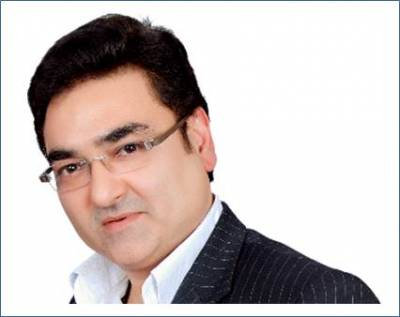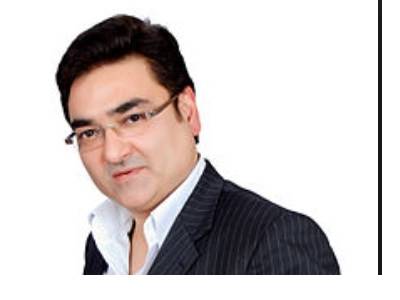AgTalk | Do not change the genre at any cost: LokSabha TV's Rajiv Mishra
Rajiv Mishra is a broadcast/media professional and founder of Electronic Media Rating Council of India. Mishra is also the founder and first President of Association of Radio Operators for India (AROI). AROI is the industry representative body of all FM Radio Broadcasters/Stations of India.
Mishra has worked for Hindustan Times, Star TV, TV Asia of USA, and BAG Films & Media. He is the nominated Member of several Media Advisory bodies in various Ministry of Government of India.
He joined LokSabha TV in December 2011 as Chief Executive Officer (CEO). He is someone who has a deep understanding of Media Convergence and the Digital future of the domain.
Mishra talked about the growth plans, focus area and the challenges faced by LokSabha (LS) TV as a public broadcaster in the country, in an exclusive interaction with Adgully.
Adgully (AG): You've been on board for couple of months; please tell us three important tasks on hand.
Rajiv Mishra (RM): The three tasks would be ' The betterment of Quality of Content, betterment of Look and Feel, betterment of Graphics/Animation and Presentation to get larger possible audience.
AG: You have a rich experience in private sector, how do you think it will help you in shaping the roadmap of LS TV?
RM: See, the challenges faced by Private or Public broadcasters are almost same. At the moment, we are working on several fronts and I am very sure that watching LS television will be now better viewing experience for the audience.
AG: What are the Do's and Dont's as a public broadcaster you and your team have to keep in mind?
RM: That is, we should be completely fact based and content should be fully substantiated.
AG: Can you tell us a bit about the content plan of LS TV and how it's different from the channels which operate in the same domain?
RM: We are much focused channel and our TG's for each and every programming is very well defined.
AG: Being a government funded channel, what is the perception of viewers and other channels towards the LS TV?
RM: Along with the parliament, the LS TV shares a responsibility to contribute to political, economic and social development in ways consistent with democratic principles by pursuing fact-based, fully substantiated coverage and to inform citizens about parliamentary activities and the role of parliament so as to help empower the public. This perception is what I would like that Viewers and other channels should have for LS TV.
AG: Since it's a government funded channel, there is a certain mindset about its functioning. Is it a myth or there is some truth in it?
RM: National broadcasters funded out of the public purse and have historically formed a vital component of the broadcasting sector in most countries and the rationale for these broadcasters, which can offer alternative programming to that provided by the commercial sector, remains strong.
AG: What are the challenges in front of you?
RM: The entire broadcasting scenario is entering in to digital domain and the advent digitalization is presenting a new paradigm shift for Public Service Broadcaster's. This scenario calls for a well-thought out strategy to deal with the new environment where convergence will play the key and major role.
AG: Can you define the TG's for the channel?
RM: Our TG's is the people who think.
AG: LS TV is a 6 year old channel, where do you see it heading in the next 2 years?
RM: In fact some countries support public service broadcasting more enthusiastically, where the public service broadcasters (PSBs) are seen as more informal, modern, and informative than before, without having lost their reputation for quality. This is what I dream for LS TV and this will be the path-forward.
AG: What would be your strategy and the plans that you are intend to implement in the way forward?
RM: As I mentioned, we are working on each and every department of the channel. From content to presentation style, from Sales/Marketing to distribution, from human resources to skill development and training, everything.
AG: Can you tell us a bit about advertisers of the channel and what kind of increase in advertising Spence do you see in the way forward?
RM: We are getting advertisement from public sector and having good growth rate with it.
AG: Are you looking at broad-basing the category of advertisers?
RM: As a policy we do not take advertisement from private sector.
AG: Currently, there have been discussions going on with certain private broadcasters on monetary exchange for showcasing your content. Your thought for the same and what has been the result.
RM: I always say that they should pay for our content and I am getting good response from them.
AG: Since you are an expert in broadcast industry, any word of advice for other broadcasters.
RM: Only one, please do not change your genre at any cost for example, if you are a news channel then please stick to that, showing comedy contents lifted from General Entertainment Channel's (GEC's) should be avoided.
Being a public sector channel, Lok Sabha TV has exclusive rights to showcase the sessions in Parliament. Public Forum, Lok Manch, Insight, Perspective, Gender Discourse, Healthy India, Globe Watch, Pillars of Democracy, Vishesh, Hauslon Ki Udaan, Surkhiyon Se Parey, Awaaz Aap Ki, State of Culture, In Transit, India through Historian's Eyes, India and the World and One on One are the shows produced by LokSabha TV. | By Ranjana Gupta [ranjana(at)adgully.com]









Share
Facebook
YouTube
Tweet
Twitter
LinkedIn